- Learning time
- 30 minutes
- First play time
- 120 minutes
Ecos – The First Continent
Designed by: John D. Clair
Ecos takes the core principle of bingo – draw a number, cross it off – and applies it instead to a continent-building game where the players are essentially deities, bringing the world to life by adding tiles to a growing landscape, populating it with mountains, trees and animals, and occasionally indulging in a little predation…
The continent starts small – two ocean tiles with some land tiles between them. Every player starts seven cubes and some cards: three face-up and a stack to draw from later. One player is assigned the role of harbinger – the equivalent of a caller in bingo. The harbinger’s job is to pull tokens from the bag showing symbols such as the sun, water, grass etc – when they do, everyone gets to add a cube to matching symbol on one of their cards. If you don’t have a matching symbol, or choose not to add a cube, you can turn your dial instead: this dial-turning is an avenue to more cards or more cubes later.
So why are you adding cubes to cards? Because when a card is full – ie, every symbol on it occupied by a cube – it activates, triggering some kind of event either on the growing play area (more tiles, mountains or trees, or animals that may proliferate or hunt each other) or in your personal area, allowing you to place more cubes or play more cards. Some cards score points, others don’t; so the real challenge of Ecos isn’t to get lucky with the draw (the dial seems to mitigate that quite well) but to find a synergy in your cards – if you have sharks, for instance, you might want to get some fish into play so your shark can eat them later. If you score points for gorillas, you need to make sure there is a viable habitat for them, as they can only be placed on landscape tiles with mountains present. But each card can only activate between one and four times before it is out of the game, so timing is important.
This continues until a ‘wild’ token is drawn (choose any symbol!) at which point all the drawn tokens go back in the bag and a new harbinger takes over. But as well as being a way to share the tactile pleasure of drawing the tiles and – if you like – making up your own deistical bingo calls, this change of hands is also seeds potential drama for later on, as we shall see.
As well as your own personal draw deck, it’s also possible to add more cards from a communal draw pile – this costs time and effort, but can be worthwhile when considering how rewarding these cards can be. As the game goes on and you extend your array of cards and improve your economy of cubes, you may well find that cards start triggering other cards and the rewards begin to cascade into each other…
As this happens it’s possible to make huge surges up the scoretrack, but Ecos has a little twist in the tale: you might be the first past the post to ‘win’ (80 points, or 60 for a shorter game) but the game will now continue until the next wild card is drawn, giving the other players a chance to catch you up. If you’ve just pulled off your move of the game and are left with nothing to do for a few turns, you’re now praying for that wild tile to pop out.
The guru's verdict
-
Take That!
Take That!
There's potential for it: although nobody can take points off each other, players can see what each other are planning and move reactively. But it's not the dominant experience of the game.
-
Fidget Factor!
Fidget Factor!
Low to moderate. It's nice that everyone is involved on every turn, but there can be lulls whilst someone either decides what to do or finds themselves in the midst of a mega-turn.
-
Brain Burn!
Brain Burn!
Moderate. The turn by turn mechanics are hugely simple - like bingo. But the synergy of which cards you choose and activate when are where Ecos turns from a fun and breezy experience into a more thinky challenge - there can be moments when you realise you need more cards simply in order to score more points.
-
Again Again!
Again Again!
Lots of variety here not just in which deck of cards you begin with (experts can draft cards instead) but how things pan out for this Pangean play-fest.

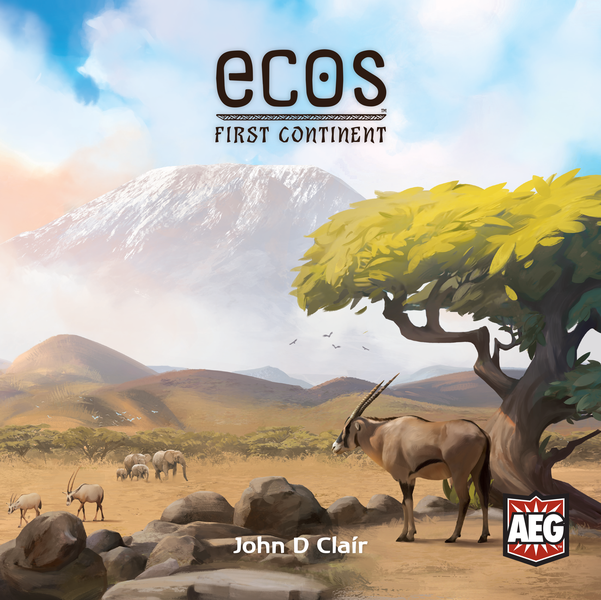








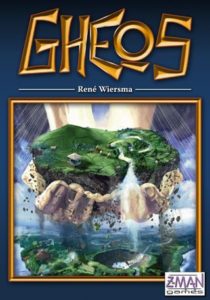
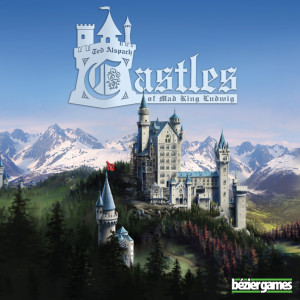
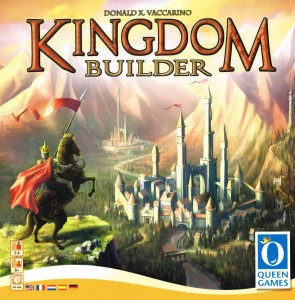
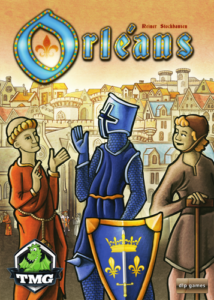
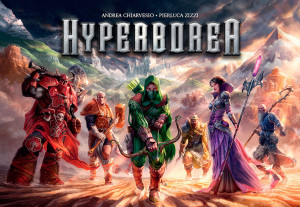
Sam says
A really neat conceit of taking a game of pure chance, and applying agency to all of your choices: triggering not rows and lines, but mountains, oceans and teeming life - along with attendant predatorial tendencies from some. I think Ecos does a solid job of building an escalating story out of that simple draw-a-tile mechanism, and I love that end-game condition of the wild tile being drawn because it adds a real tension. However, we found the experience can get rather fiddly towards the end when the cards-beget-cards thing, whilst extremely rewarding for the player on the receiving end of this shower of bonuses, can start to bog the experience down a little bit as everything stops in order for someone to add cubes, turn dials, and need a brief hiatus to look through their cards and figure out which one best suits the current state of play. And that can happen more frequently, for more players, the further you get into the game - meaning the sense of play errs marginally towards a sense of management as multiple players juggle multiple plates. I've read opinions from multiple people rhapsodizing about Ecos, so clearly some won't mind that, but for us there was a kind of stop-start to proceedings that meant nobody really fell in love with the game.